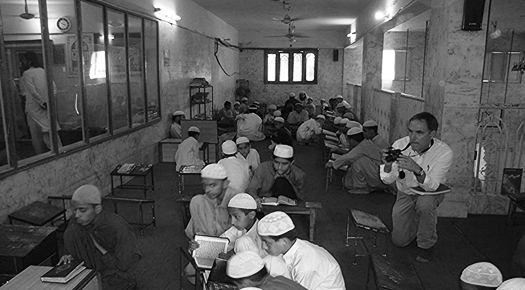
Photo Credits: Flickr
Millions of Pakistani children have their only education in religious schools such as madrassas which provide narrow religious education while also promoting sectarianism, extremism and hatred for the West. Pakistani Prime Minister Imran Khan is putting his efforts into reforming the country’s 38,000 madrassas, just like several Pakistani leaders before him. Khan is pointing out that this reform is his government priority and that his goal is to give the estimated 3.5 million children currently enrolled in madrassas an opportunity to pursue mainstream education and eventually become doctors, engineers, judges, etc. But this is not an easy task because all efforts to reform madrassas, taken by other Pakistani rulers, have failed so far.
The madrassas in Pakistan flourished in the eighties and during the Soviet-Afghan war, the seminaries got massive funding from the United States and Persian Gulf nations, such as Saudi Arabia, and madrassa students called “mujahedeen”, or holy warriors, trained and went to Afghanistan to fight the Soviets. The seminaries were under the impact of the radical ideologies of Wahhabism, a strictly conservative Sunni sect that intensified the development of sectarianism, and the schools proliferated in numbers and became partners in religious militancy. Since the beginning of the 21st century, Pakistani security agencies have watched over madrassas that produce recruits to Islamist militant outfits in the country in order to establish some kind of control over them and Pakistani leaders tried to reform the madrassas which did not please madrassas leadership.
The goal of the reforms, planned by Imran Khan, is to provide better education to madrassa students, but some Islamic leaders believe that the real reason behind reformation is to reduce the power of Islamic leaders who are capable of putting hordes of madrassa students into the streets for political goals, according to Religion News Service. “Whenever there is any anti-Islam activity our students are the first ones who take to streets,” said Amjad Butt, a madrassa graduate and a teacher at Jamia Ashrafia Seminary in Lahore.
“The government is trying to please the Western powers by talking about reforms in madrassas,” said Pakhtunkhwa Fazlur Rehman, the leader of the Jamiat Ulema-e-Islam political party, which runs many madrassas. “Any action against madrassas will be seen as action against Islam. We will protest and force the government to withdraw its decisions.”
On the other hand, according to the prime minister’s reform plans, the goal is to eliminate private schools, which are largely attended by well-to-do Pakistanis, improve the public education system that educates the country’s poor and introduce a nationwide curriculum that madrassas would also need to follow.
